This week we caught up with Farzad Kasad, Occupational Health & Safety Specialist. Farzad shared some professional experiences of what he does, what makes him proud, and some common misconceptions about his role.
What led you to your current role?
I have always had a passion for understanding human behaviour and how it relates to workplace dynamics. My last 7 years in the Occupational Health and Safety field have provided me an avenue by which to follow my passion and influence Safety behaviours, actions and mindset. I joined Bouygues E&S Canada in January of 2018.
Who are you and what do you do?
I am an Occupational Health and Safety Specialist. I advise and guide all levels of the organization in the implementation of our Health and Safety program. Key duties in my role include providing Health and Safety training to workers; supporting effective incident investigation processes; managing disability and return to work processes; mentoring our Joint Health and Safety Committees on all sites and reviewing and planning Safe Systems of Work. I also partner with external stakeholders such as Regulatory Authorities and Insurance Carriers to ensure that the interests of Bouygues E&S Canada are adequately represented.
What challenges have you faced this year?
The COVID19 pandemic has provided a challenge that has not just been unique to Bouygues E&S Canada, but workplaces everywhere. It has been rewarding to see the resilience of our team during these times. Our workers have done a fantastic job of following our site-specific COVID exposure plans, along with adhering to all Public Orders from Health Authorities. There has been a large amount of engagement and collaboration between cross functional teams in the organization as well, which has led to improved communication lines and stronger internal controls.
What are you most proud of since working at Bouygues?
We have continued to drive down our accident rates, both in frequency and severity on a year to year basis. This trend has been a reflection of the commitment from all levels of the organization towards our Health and Safety program. Through focusing on a stronger return to work program, pro-active communication and planning, and focusing on creating a stronger safety culture, these results have been made possible.
We also won the BOMA BC Health and Safety Award on May 28, 2020. Our Award submission covered how we monitor, manage and improve workplace safety, in addition to creating a strong safety culture.
What is a common misconception in your role?
I think a common misconception that is probably more applicable to the Health and Safety industry in general is that Safety needs to take on a policing or enforcement role in order to achieve compliance. The reality is that workers need to have Safety ingrained in their daily habits and behaviours. They need to practice safe work procedures every day, not sometimes or whenever it is convenient. In my experience, I have found that empowerment and education are key drivers in achieving long term safety compliance with workers. Finding what drives employee behaviour and their motivations as to why they want to work safely is as important as finding out how they can work safely. Although policing or enforcement roles have their place and are key in certain situations, they are not the only tools available to OH&S professionals.

